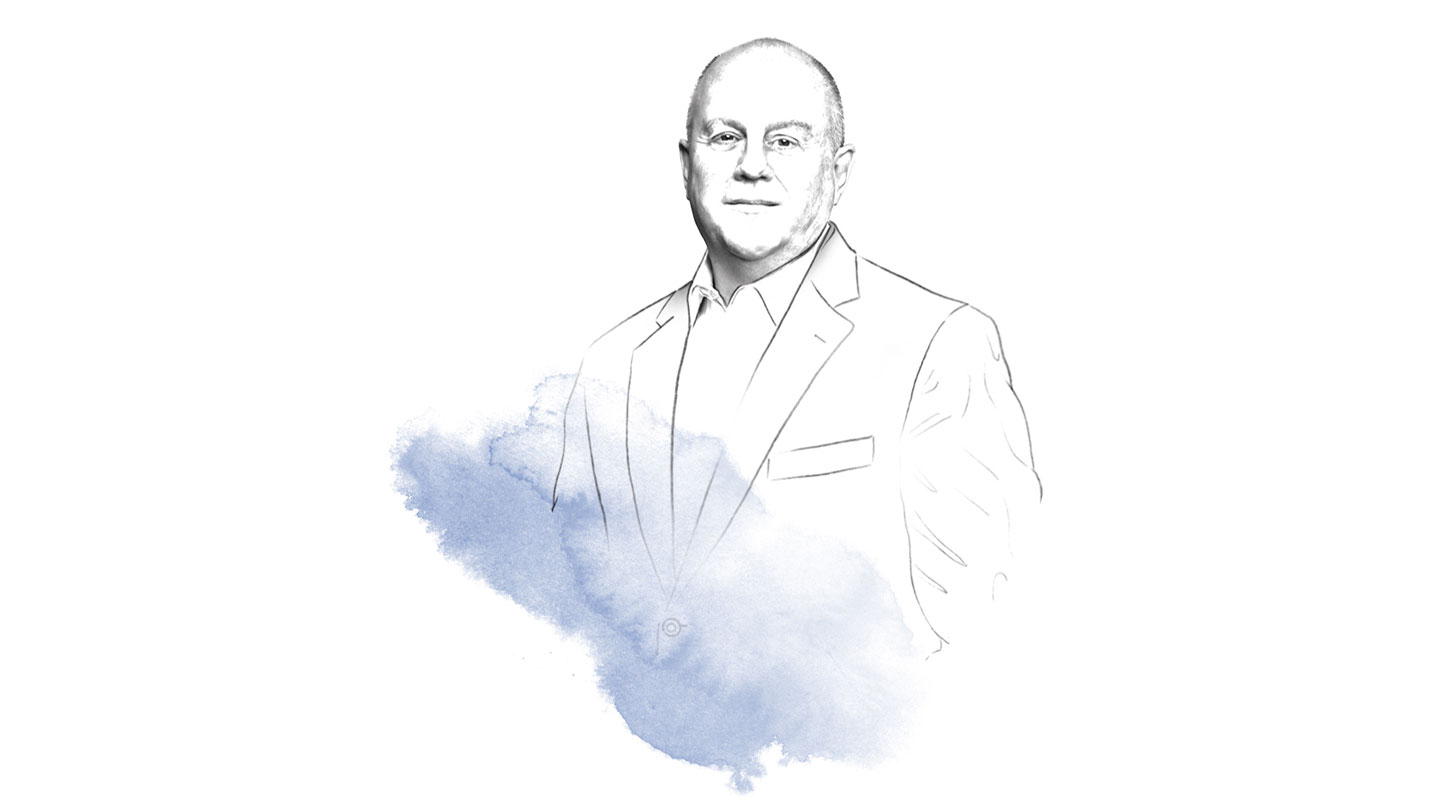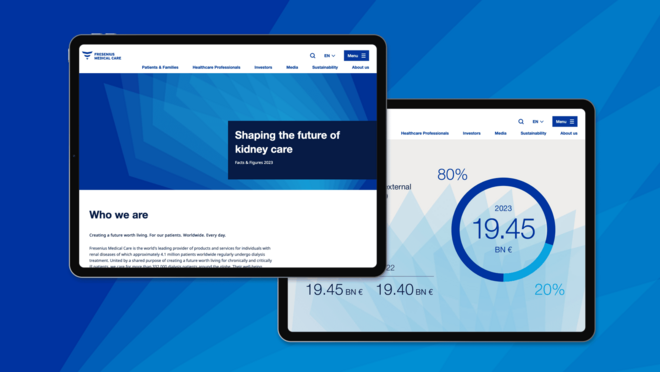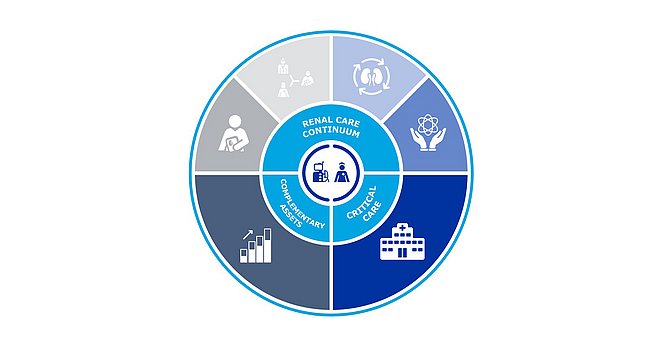Overcoming challenges and seizing opportunities

Mr. Powell, in 2020 you have taken a step further with your company’s strategy. What is behind this?
Rice Powell: “In the future, health care will not be as we know it today. We have a population that is steadily aging. Chronic diseases will continue to rise. In addition, the provision of care is currently fragmented in many areas, and therefore inefficient. Health care systems all over the world are under cost pressure and lack qualified staff. As a Company, we aim to actively address these key challenges and tackle them with new approaches and solutions.
Our four core competencies – innovative products, operating outpatient facilities, standardizing medical procedures, and coordinating patients efficiently – play a fundamental role in this. We aim to go one step further: Our strategy is the way forward for us as a Company to offer our patients the best possible care while doing justice to constantly evolving health care systems.”
So it’s a matter of overcoming challenges, but also seizing opportunities, then?
“Definitely. We are the world’s leading vertically integrated provider of products and services for individuals with renal diseases. More than half of all dialysis patients are treated with our products, and we have the largest dialysis network with more than 4,000 dialysis centers in 50 countries. We need to expand this in our patients’ interest, so that we can support them even more effectively and comprehensively along their entire treatment path.
That‘s why the renal care continuum for chronically and critically ill people is at the heart of everything we do, and one of the three growth areas of our strategy. For example, we aim to provide patients who have recently been diagnosed with kidney failure with even better information on the various treatment options available to them. To this end, we have already set up special Transitional Care Units (TCUs) in the U.S. But the opportunities provided by digitalization and the expansion of home dialysis also play a key role here.”
… and they open up great possibilities for patients as well as health care systems.
“That‘s right – and not just since the pandemic began. At Fresenius Medical Care, we have long promoted digital options such as telehealth and home dialysis that allow physicians to care for their patients remotely as well. The pandemic has reinforced our view that we are on the right path and also the regulator has supported this with new rules for reimbursement. COVID-19 has once more demonstrated how great the need is for innovation, agility, and flexibility, particularly in the health care sector, and that we should not take what we have achieved in recent years for granted.
Not that we have any intention of doing so, as another pioneering digitalization product we are working on shows: Using artificial intelligence and big data, we are creating a kind of anonymized digital avatar of a patient. To do so, we draw on their medical history, current therapies, and diet to calculate risk models and put together improved treatment plans. These anonymized models also help health care systems, which benefit from well-adjusted therapies for patients. The patients need to be hospitalized less often, are in better general health, and therefore also lower costs incur for the system. We are currently working on rolling out this system to our clinics worldwide.”

“We have long promoted digital options such as telehealth and home dialysis that allow physicians to care for their patients remotely as well. The pandemic has reinforced our view that we are on the right path.”
You mentioned three key strategic areas. What are the other two growth areas of the Strategy?
“The second growth area covers critical care solutions. We are already leaders in acute dialysis thanks to innovations like the multiFiltratePRO. At present, around a quarter of patients admitted with COVID-19 to an intensive care unit require treatment for acute kidney failure. Our products save lives in such cases, too. In addition to acute dialysis, we aim to extend our extracorporeal critical care therapy options, such as the treatment of acute heart, lung, and multi-organ failure.
Fresenius Medical Care also intends to strengthen its existing network through additional partnerships, investments, and acquisitions in what we call ‘complementary assets’, which is our third growth area. In the past, we have been able to extend the range of therapy options we offer beyond kidney disease, for instance through the acquisition of Cura. This company operates day care hospitals in Australia and offers treatments in various fields – from ophthalmology to vascular access. In this way, we can manage costs and create an even stronger foundation for future growth in the next five years and beyond.”
What role does sustainability play in the Company‘s success?
“Our dedication to improving our patients’ quality of life naturally also affects how we look at sustainability. Our long-term focus is on opportunities that support our mission to provide the best possible care and deliver sustainable solutions for an increasing number of patients.
This also means that sustainability needs to be fully integrated into our processes and operations. We launched our Global Sustainability Program with this in mind. This multi-year program establishes common goals, policies and key performance indicators for our company. We have also introduced non-financial performance targets for management compensation that are linked to the progress of our Global Sustainability Program. They once again reflect our aspiration to be measured by our commitment to continuously improve.”

